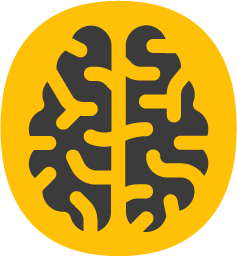We at the O’BRAIN Lab believe that multiple individual factors determine what and how much we eat and how susceptible a person is to develop obesity. Individual differences in behavior, governed by cognitive processes and traits like reward-sensitivity, reinforcement learning or executive functions, might make it more difficult to navigate in today’s complex obesogenic environment. Eating and choice behavior can be acquired and shaped throughout the lifespan but are presumably influenced by underlying genetic predispositions as well. With our research, we aim to identify neurocognitive profiles that can explain what factors contribute to certain eating habits on the individual level. Ultimately, our research will help prevent the progression and treatment of maladaptive eating habits and obesity by developing individualized intervention strategies.
We tackle this ambitious goal by drawing upon multiple scientific disciplines such as biology, psychology, neuro- and cognitive sciences, medicine, nutritional sciences, and mathematics. Since 2019 our lab is based at the University of Helsinki, Finland and we have a close collaboration with the Max Planck Institute for Human Cognitive and Brain Sciences in Leipzig, Germany.
We currently have several active projects in our lab:
This project is done in collaboration with Dr. Franziska Korb (Technische Universität Dresden) and aims to investigate how a participant’s mindset influences food choices. More specifically, we use an online experiment to find out how the perceived properties of food items influence food choice behavior and whether these influences can be strengthened or weakened by a goal-setting intervention-oriented mindset. Lastly, we care to find out what role BMI (body mass index) plays in our decision-making task.
Keywords: decision-making, delay discounting, mindset interventions

In collaboration with the IFB AdipositasErkrankungen in Leipzig, we investigate flexible goal-directed decision-making processes in a cohort of adolescent and adult obesity patients with and without BED. In this way, we want to systematically differentiate the neurocognitive mechanisms of obesity and BED in adolescence and adulthood. We use functional magnetic resonance imaging (fMRI) to probe two crucial components of goal-directed decision-making: reversal learning and working memory updating and maintenance. Because alterations in dopaminergic signaling have previously been implicated in goal-directed decision-making as well as BED and obesity, we also investigate whether these neurocognitive measures are associated with genetic and imaging proxies of prefrontal and striatal dopamine function.
OSF link pre-registration: 10.17605/OSF.IO/FYN6Q
Building on findings from animal studies we are interested in whether a higher intake of saturated fats and refined sugar is associated with differences in dopamine-related cognition. We recruited participants based on their self-reported fat and sugar intake, grouped them into low and high consumers and compared their performance on five different cognitive tasks – two of which were performed in the MRI scanner. Additionally, two genetic variants related to dopamine were analyzed and linked to dietary intake and cognition.
keywords: fat, sugar, cognition, genetics
Link to the preregistration: https://osf.io/vs8cm/
Previous studies suggest that there are unconscious signals to the reward system that influence food choice and that are created and maintained as a consequence of our modern, obesity-promoting environment. To confirm those results in a Finnish sample, we aim to investigate macronutrient combinations such as carbohydrates and fat food items and examine their effects on food motivation. Using a series of food questionnaires (e.g., Dietary Fat and Sugar Questionnaire), a behavioral task as a proxy for food reinforcement, and functional magnetic resonance (fMRI), we hope to move closer to understanding the effects of modern diets on human eating behavior and cognition in individuals with a wide range of BMI.
Keywords: macronutrients, fat, carbohydrate, reward

Synthesized from dopamine, neuromelanin accumulates with age. Concentrations of neuromelanin have been shown to correlate to dopamine release. Findings in animal studies suggest that following a diet high in fat and sugar induces dopaminergic changes. However, how these alterations relate to long-time changes within the brain’s dopaminergic pathways is not known, and therefore we investigate whether a higher intake of saturated fats and refined sugar is associated with differences in neuromelanin concentration in humans. We do this using quantitative susceptibility mapping (QSM), an MRI technique that is sensitive to paramagnetic substances.
This collaboration project with the Department of Economics at the University of Zurich employs functional magnetic resonance imaging (fMRI)-based neurofeedback from human SN/VTA midbrain nuclei. Based on their assumed role in motivation, this project investigates the link between (voluntary) BOLD signal fluctuations within these areas and changes in cost-benefit decision-making.
Keywords: dopamine, midbrain, neurofeedback, decision-making, mental effort
In 2010, a breakthrough study by Lally and colleagues titled How are habits formed: Modeling habit formation in the real world found that on average it takes people 66 days to form a healthy habit. This study has been cited more than 2000 times, inspired a line of research into real-world habit formation, and influenced public occupational health, business economics, and science technology around the globe. In an international cooperation with the universities of Amsterdam, NL, Cambridge, UK, and Konstanz, GER and led by Dr Sanne de Wit we aim to replicate the study’s finding and extend it to a broader population.
keywords: habit formation, replication
RESOURCES & INFRASTRUCTURE
The O’BRAIN Lab has access to a range of methodological devices:
With the help of Magnetic Resonance Imaging (MRI), we take our behavioral research one step further and explore neural correlates of obesity-related behavioral differences. All MRI-techniques use strong but harmless magnetic fields to image the human brain and identify structural alterations or specific brain regions that are engaged during a task
Our studies combine data from validated questionnaires with other behavioral, anthropometric, and physiological measures from our participants. With these questionnaires we look into personality traits, eating behavior or assess dietary patterns.
Eye tracking uses projection patterns and optical sensors to gather data about the position and movement of eye and gaze direction. This data can inform us for example about an individual’s attention or center of focus.
The brain operates by discharging very small electrical impulses, sending information from one brain area to the other. Electroencephalography (EEG) picks up on these electrical activations in a millisecond resolution and in this way can record brain activity relevant to a certain task in a very precise temporal manner. In order to record the signal, participants will be asked to put on a fabric cap which has a number of (32 up to 128) microdisk electrodes attached to it. Because hair usually prohibits the electrodes from being directly in contact with the surface of the head, a tiny bit of wet gel is applied to each electrode individually in order to build a “bridge” between the surface of the head and the electrode.
We publish all of our publicly available code on Github.
COLLABORATIONS
PARTNERS & FUNDING
We are grateful for the support and ongoing funding by these partners:

